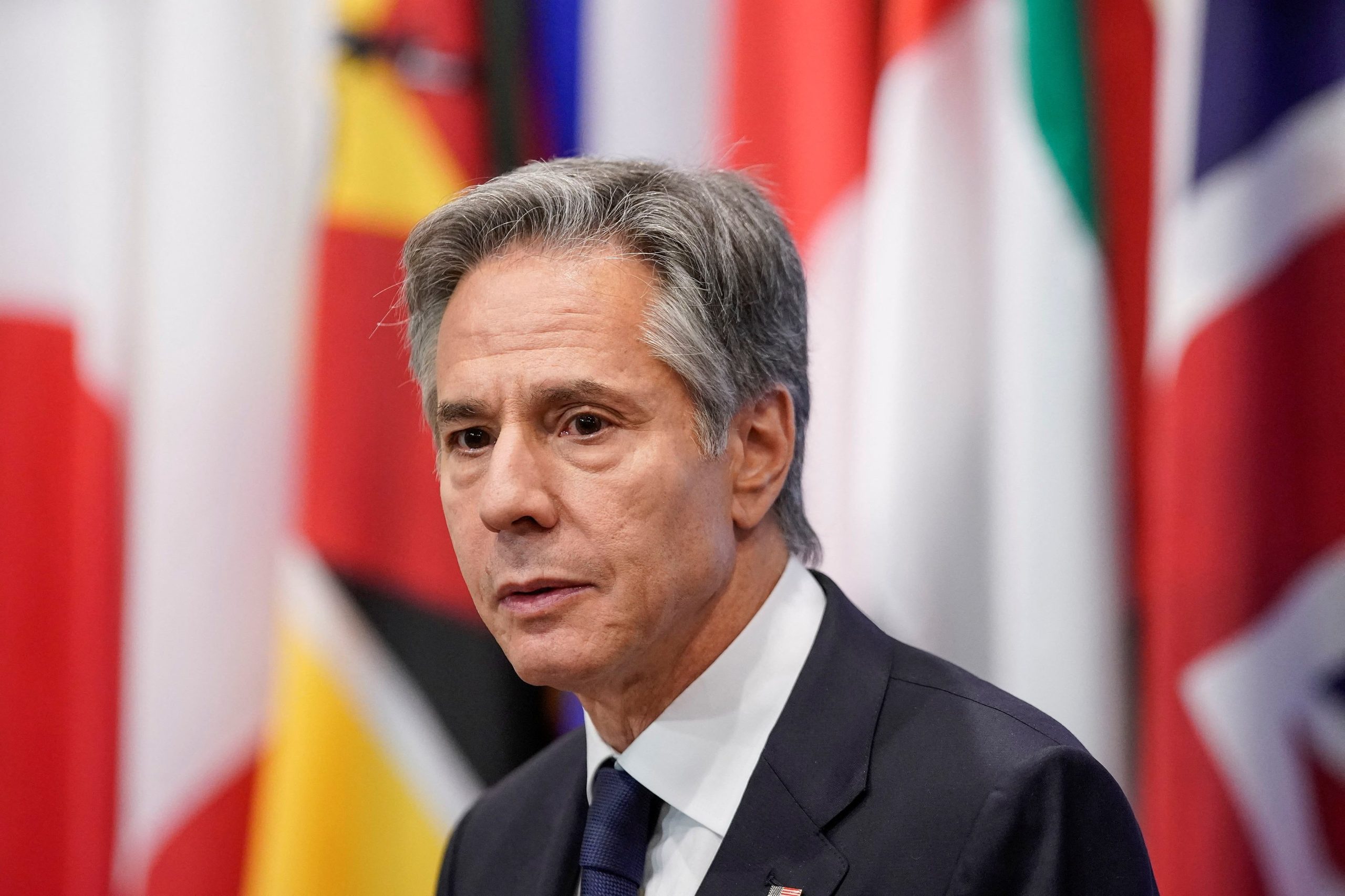On Wednesday, April 3, US Secretary of State Antony Blinken made a call to Azerbaijan’s President Ilham Aliyev, urging for a reduction in the recently escalated tensions with Armenia. This call precedes a collaborative effort by the US and the European Union to bolster Armenia’s economy through talks scheduled to take place in Brussels.
During his conversation with Aliyev, Blinken supported the peace negotiations between Armenia and Azerbaijan. He emphasized the potential economic advantages of peace to the entire region.
According to a statement from State Department spokesperson Matthew Miller, Blinken highlighted the importance of avoiding any actions or rhetoric that could escalate tensions or hinder the peace process.

Blinken (Credits: Politico)
Blinken addressed the importance of respecting human rights within Azerbaijan and discussed the pressing issue of climate change, noting Azerbaijan’s role as a major oil and gas producer and its selection as the host for this year’s UN climate summit.
The backdrop to this diplomatic engagement includes recent exchanges of fire across the Armenia-Azerbaijan border, reigniting concerns over potential conflict.
Last year, Azerbaijan reclaimed control over the Nagorno-Karabakh region from Armenian separatists through a swift military operation, leading to the displacement of over 100,000 Armenians.
Despite this turbulent history, there has been a glimmer of hope for a comprehensive peace agreement between Azerbaijani President Aliyev and Armenian Prime Minister Nikol Pashinyan.
The forthcoming meeting in Brussels, which will see Pashinyan engaging with Blinken and European leaders, represents a pivotal moment for Armenia. This engagement signifies a concerted effort by Western allies to strengthen Armenia’s economic position and reduce its dependency on Russia.

Sir Blinken (Credits: Reuters)
The relationship between Armenia and Russia, traditionally allies, has been strained, mainly after Russia failed to intervene in Azerbaijan’s military victory last year amidst the Ukraine conflict.
Pashinyan’s recent call for a national dialogue on the possibility of Armenia joining the European Union underscores the country’s interest in pivoting towards the West and reevaluating its alliances.
As these diplomatic efforts come to light, the international community watches closely, hopeful that sustainable peace and economic development can be achieved in this historically volatile region.























